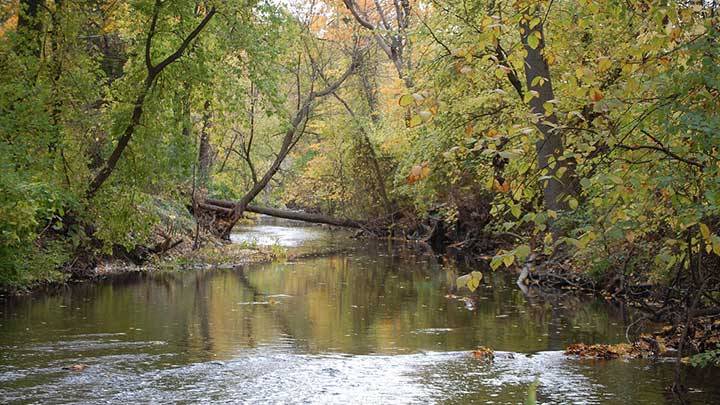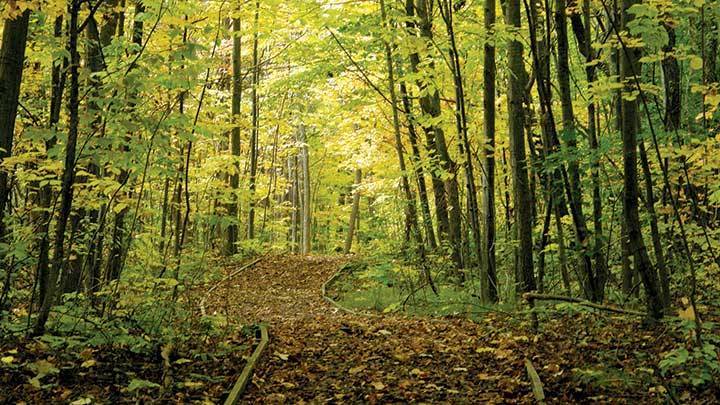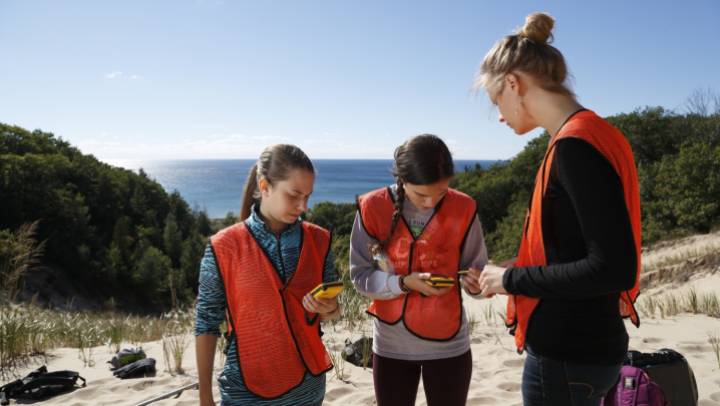What You'll Learn
Calvin graduates solve problems in the real world. And in an energy-hungry society, one of the ways you’ll make a significant difference is by solving those problems sustainably.
Adding a sustainability designation to your degree means you’re committed to a bigger vision of what you can do as a student at Calvin. It means everything you do takes into account the impact it will have on the people and places around you. It means you’ve immersed yourself in courses that analyze the most pressing environmental challenges and opportunities. And it means you embrace Calvin’s unique understanding of renewal as a way to serve, heal, and restore God’s creation.
It also means you’ll be well-suited for the job market. As more and more companies understand the importance of efficiency and sustainability, you are sure to stand out from the crowd.
What Makes This Program Great
- Practice what you learn: Your professors will help you create a program that fits both your interests and schedule including a 100-hour sustainability experience that applies your passion for sustainability to real-world situations.
- Works with anything: You can add a sustainability designation to any major at Calvin.
- Opportunity to grow: Calvin’s campus is rich with student organizations, summer research, and other programs related to your interest in sustainability and ecology.
- Easy to add: Adding a sustainability designation won’t add extra semesters. Your professors will work with you to make sure you meet the requirements in four years.
Program Requirements
- IDIS 184 (2 SH) Introduction to Sustainability Challenges
- 8 hours of ES Tagged Courses, no more than 4 from any one field of study
- IDIS 384 (1 SH) Sustainability Experience
For a more detailed look, see the program requirements here.
Explore sustainability and conservation at Calvin
There are plenty of opportunities to dig into the real work of conservation and sustainability at Calvin.

Plaster Creek Stewards
Explore, preserve, and restore the health and beauty of a local watershed in west Michigan.

Ecosystem Preserve and Native Gardens
The preserve’s 100+ acres of native plants and natural habitats offer boundless opportunities to explore and connect with nature.

First-year Research at Lake Michigan Dunes
Investigate fascinating questions about Lake Michigan coastal dunes, and contribute to real-world conservation efforts.








